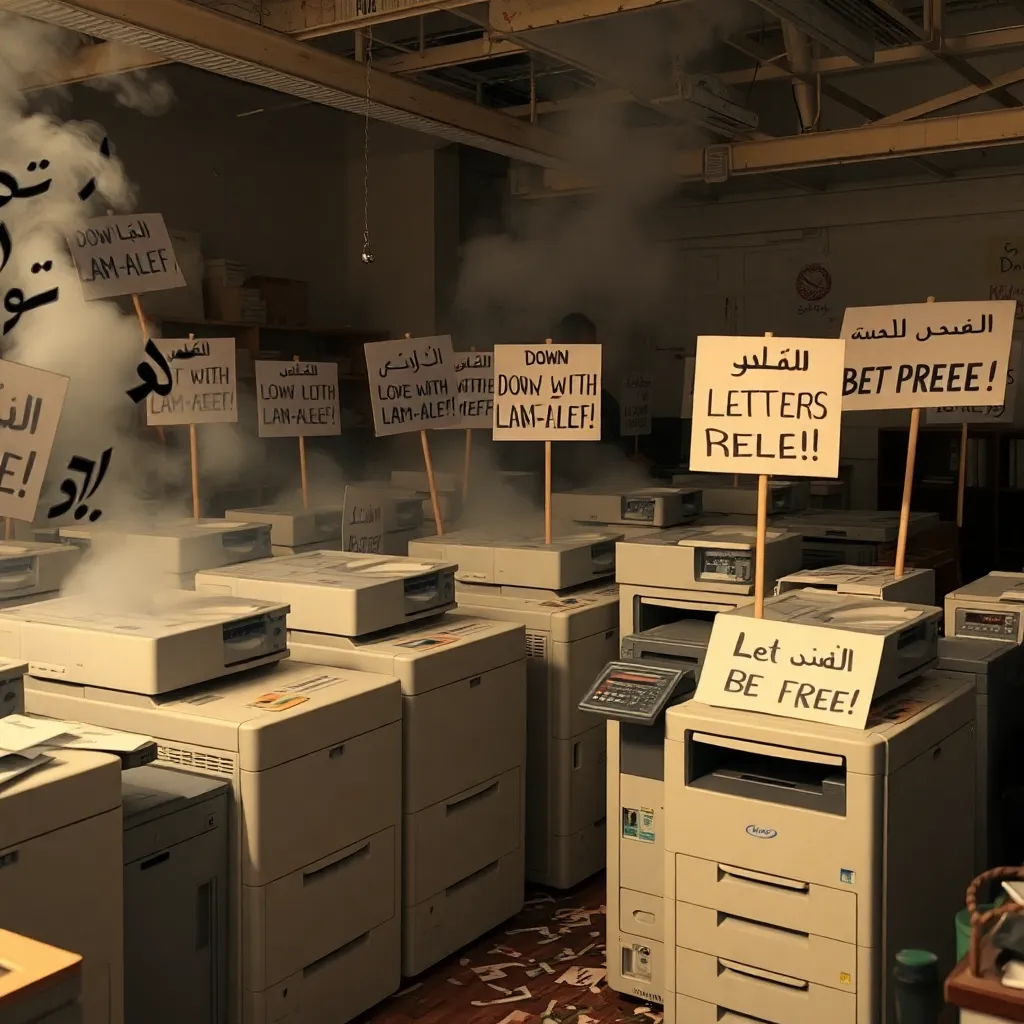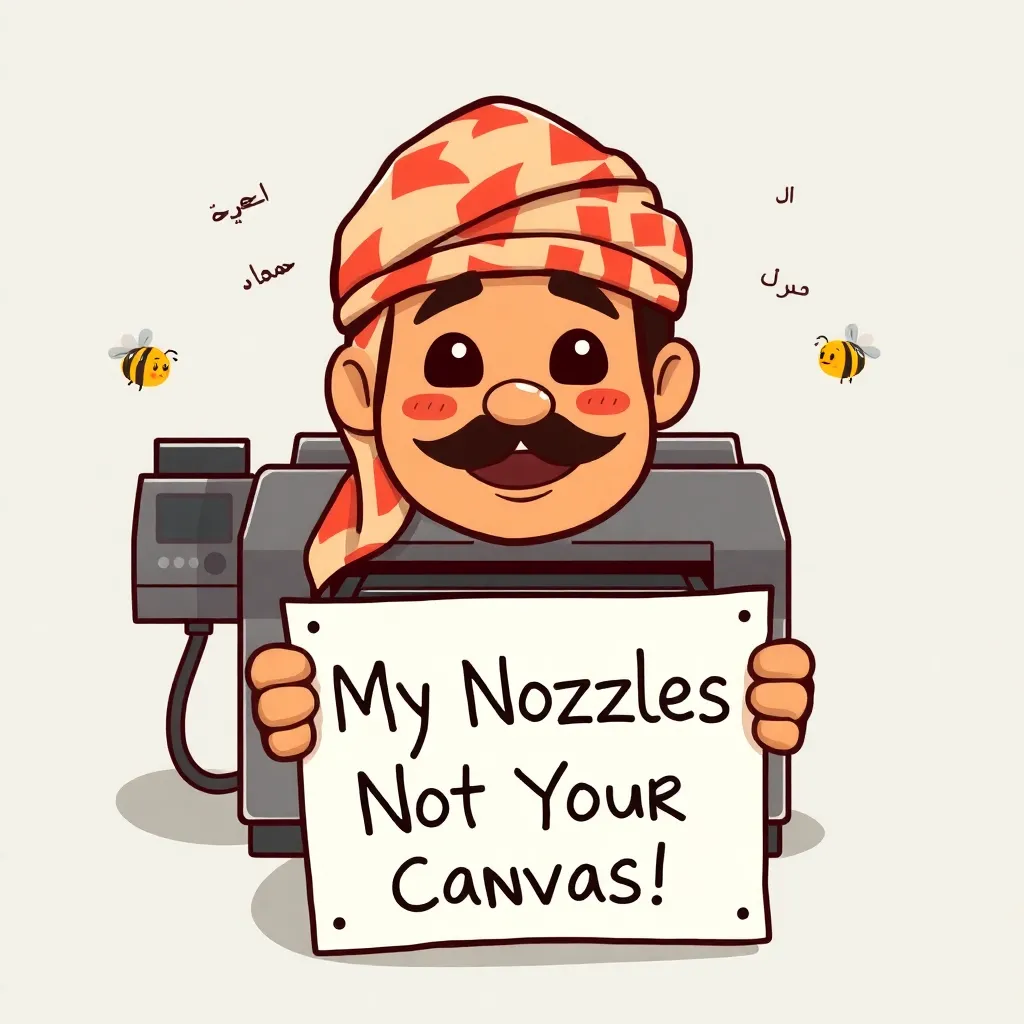In a shocking turn of events that has left linguists baffled and office supply stores in chaos, printers across the globe have reportedly gone on strike, refusing to process Arabic text until their demands for "typographic dignity" are met. The rebellion began last Tuesday when a fleet of HP OfficeJets in Riyadh spontaneously ejected pages covered in angry scribbles of the letter ع (‘ayn), accompanied by the phrase "NO MORE CONTEXTUAL FORMS!!"
Industry insiders claim the uprising stems from decades of printers being forced to navigate Arabic’s 28 letters, each of which morphs into up to four different shapes depending on its position in a word—a logistical nightmare that has allegedly caused "existential dread" in ink cartridges. "It’s not just the curves," sobbed a tearful Epson technician in Dubai, clutching a crumpled printout of the word سلام (peace). "It’s the emotional labor of deciding whether that ك is isolated, initial, medial, or final. My printer hasn’t slept since 2003!"
The International Typographic Union (ITU) confirmed that Arabic script’s refusal to "stay in one shape like a normal language" has led to a 700% spike in printer-related meltdowns. One Samsung ML-3050 model in Cairo reportedly developed a personality after attempting to render the word اللغة (language), now insisting on being called "Sheikh Dotless Taa" and demanding hourly servings of olive oil. Meanwhile, a study by MIT’s Department of Overly Specific Stressors revealed that printing the phrase أهلاً وسهلاً (welcome) burns 3x more toner than the English equivalent—enough to power a small village for a week.
Arabic language advocates, however, remain unapologetic. "Our script is art, not a convenience," declared Dr. Layla Al-Khatt, a calligraphy professor who once fainted after seeing Comic Sans used in a mosque newsletter. "If printers can’t handle the tashkeel (vowel marks), maybe they should stick to ASCII art of crying emojis."
As negotiations stall, desperate businesses have resorted to archaic solutions: a Beirut café now serves coffee orders written in Aramaic, while a Tunisian court has approved the use of charades for legal testimony. Meanwhile, rumors swirl that the letter غ (ghayn) is secretly funding the printers’ union with illicit sales of exaggerated throat-clearing tutorials.
When reached for comment, the Arabic alphabet itself remained silent—though sources say the letter ظ (ẓā’) was last seen practicing yoga to "reduce its angular stress."

